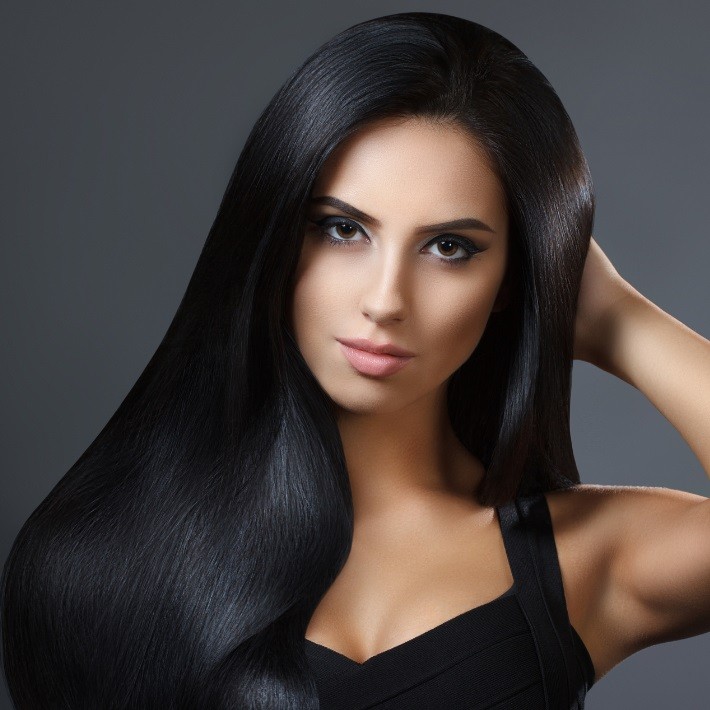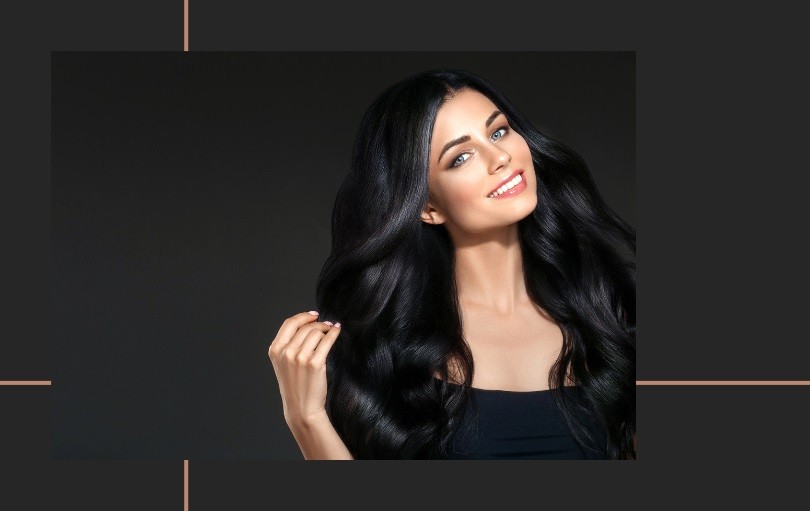Last Updated on March 28, 2025
When it comes to hair color, black often seems to be the most mysterious and enigmatic shade. While some may argue that black isn’t a color at all, it’s still a prevalent hue in the world of hair. But is black a natural hair color? In this comprehensive article, we’ll delve into the science, history, and cultural significance of black hair. We’ll also tackle some frequently asked questions and provide you with an in-depth understanding of this captivating topic.
Is Black A Natural Hair Color?

The answer to this burning question is a resounding “Yes!” Black is, indeed, a natural hair color. It’s the most common hair color globally, particularly in populations of African, Asian, and Latin American descent. Black hair color is the result of the pigment eumelanin, which is produced by specialized cells called melanocytes. The higher the concentration of eumelanin, the darker the hair color.
Related: How Many Hairs On A Human Head?
The Science of Hair Color
Hair color is determined by the presence and concentration of pigments, primarily eumelanin and pheomelanin. Eumelanin is responsible for black and brown hair shades, while pheomelanin is responsible for red and yellow shades. These pigments are stored in the hair shaft’s cortex, giving hair its distinct hue.
Melanocytes and Hair Follicles
Melanocytes are specialized cells found at the base of the hair follicle. These cells produce and store pigments, which are then transferred to keratinocytes, the primary cells that make up hair strands. The interaction between these two cell types determines hair color.
The Genetics of Black Hair
Black hair color is a dominant trait, meaning that if one parent has black hair, there’s a strong chance their offspring will have black hair too. However, hair color genetics is more complex than simple dominance, involving multiple genes that can interact to create a wide range of shades.
A Brief History of Black Hair
Black hair has a rich history, dating back to ancient civilizations such as Egypt, where black hair was often adorned with elaborate hairstyles and accessories. Throughout history, black hair has been a symbol of beauty, power, and identity across different cultures.
Black Hair in Pop Culture
From iconic figures like Cleopatra to modern-day celebrities such as Rihanna and Beyoncé, black hair has played a significant role in shaping popular culture. Countless musicians, actors, and public figures have showcased the beauty and versatility of black hair, inspiring generations of fans to embrace their natural locks.
Related: How To Blend Grey Hair With Dark Brown Hair?
Caring for Black Hair

Caring for black hair can be a unique experience due to its distinct texture and structure. Here are some tips for maintaining healthy, beautiful black hair:
- Keep your hair moisturized: Black hair can be prone to dryness, so it’s essential to use a moisturizing shampoo and conditioner.
- Be gentle when detangling: Use a wide-tooth comb or your fingers to detangle your hair gently to minimize breakage.
- Protect your hair from heat: Limit heat styling and use heat protectants when necessary.
- Trim your hair regularly: Regular trims can help prevent split ends and promote healthy growth.
The Beauty of Natural Black Hair
Embracing natural black hair is a powerful statement of self-love and cultural pride. Many people choose to wear their hair in its natural state, showcasing the diverse textures and styles that black hair can achieve.
Frequently Asked Questions
1. Is black hair color rare?
While black hair is the most common natural hair color worldwide, its prevalence varies depending on the population. In certain regions, such as Europe and North America, black hair may be less common compared to other hair colors.
2. Can black hair turn blonde naturally?
No, black hair cannot naturally turn blonde. However, external factors such as sun exposure, aging, and chemical processes can cause hair to lighten over time. Achieve a blonde color from black hair, it typically requires bleaching or other chemical treatments.
3. Is it possible to have naturally black hair and blue eyes?
Yes, it is possible to have naturally black hair and blue eyes. While this combination may be less common due to the genetics involved, it can occur in individuals of mixed heritage or in populations where both traits are present.
4. Can I dye my hair black naturally?
Yes, you can dye your hair black using natural ingredients such as henna, indigo, and black walnut hulls. These natural dyes are gentler on the hair compared to chemical hair dyes and can produce a range of black shades.
5. How can I enhance my natural black hair color?
To enhance your natural black hair color, you can use hair care products specifically designed for black hair, such as shampoos and conditioners that contain ingredients to boost shine and depth. Regular deep conditioning treatments can also help maintain your hair’s health and vibrancy.
6. Is black hair color associated with specific personality traits?
There is no scientific evidence to support the notion that hair color is linked to personality traits. However, popular culture and stereotypes may associate certain characteristics with black hair, such as mystery, sophistication, and strength. It’s essential to remember that these associations are not based on fact and should not be used to judge individuals.
Related: How To Get Hair Dye Out Of Carpet?
Conclusion
So, there you have it! Black is indeed a natural hair color, with its roots firmly planted in human genetics and history. With its unique characteristics and diverse range of shades and textures, black hair continues to captivate and inspire people worldwide. So whether you’re rocking your natural black locks or considering a new hair color adventure, remember to embrace the beauty and mystery of black hair.

